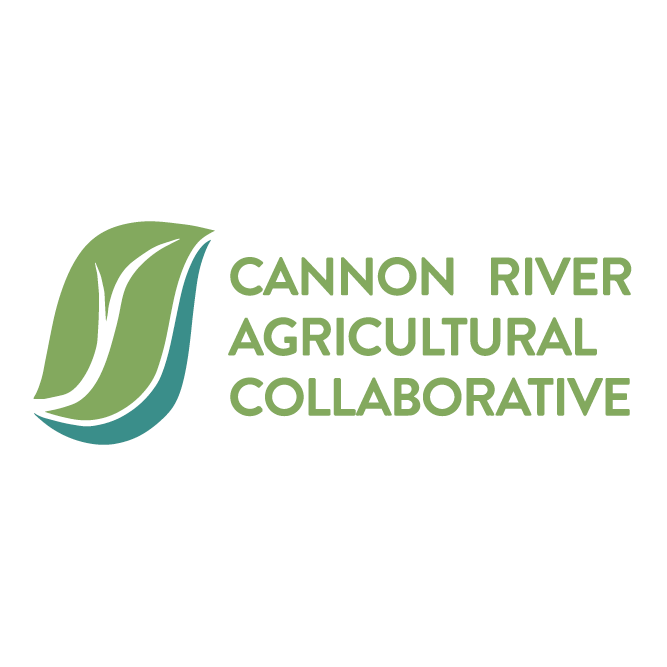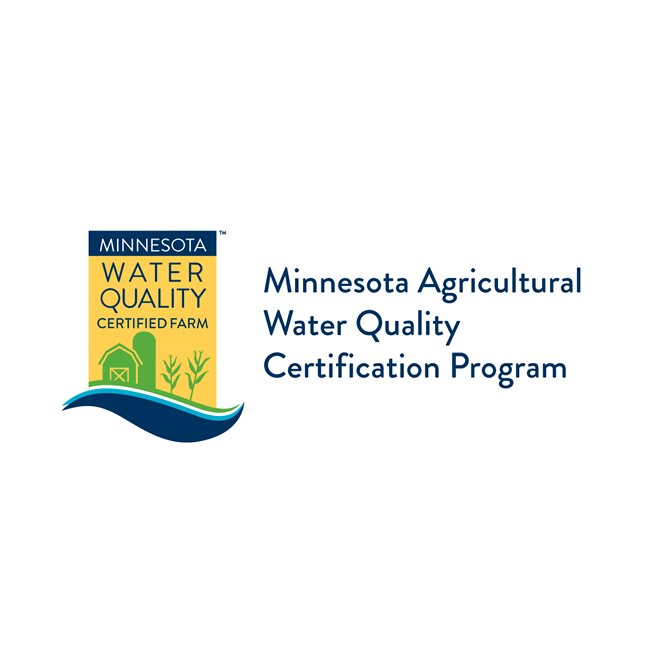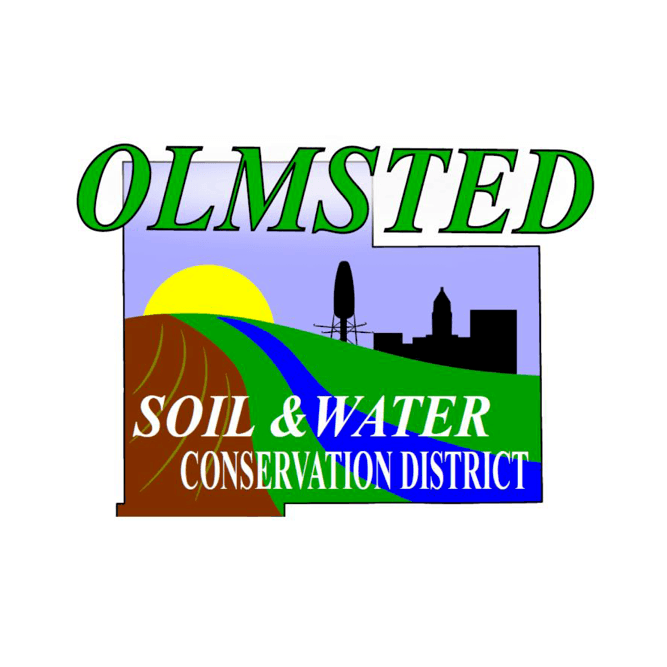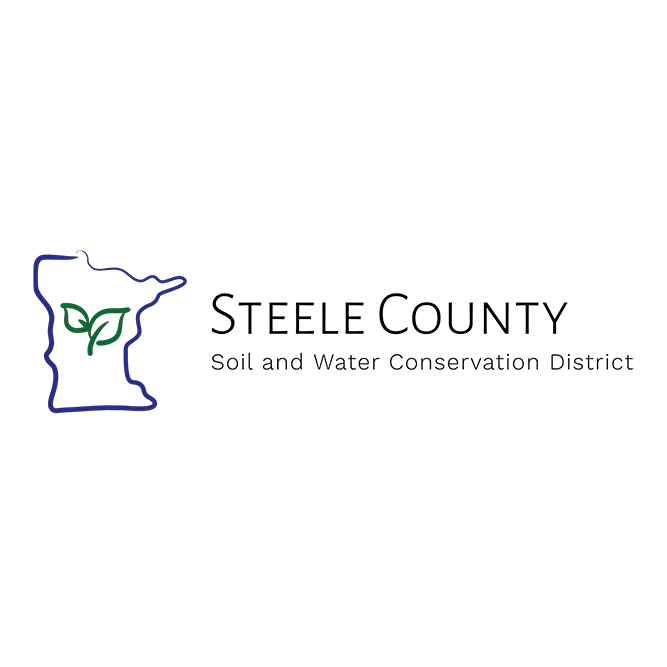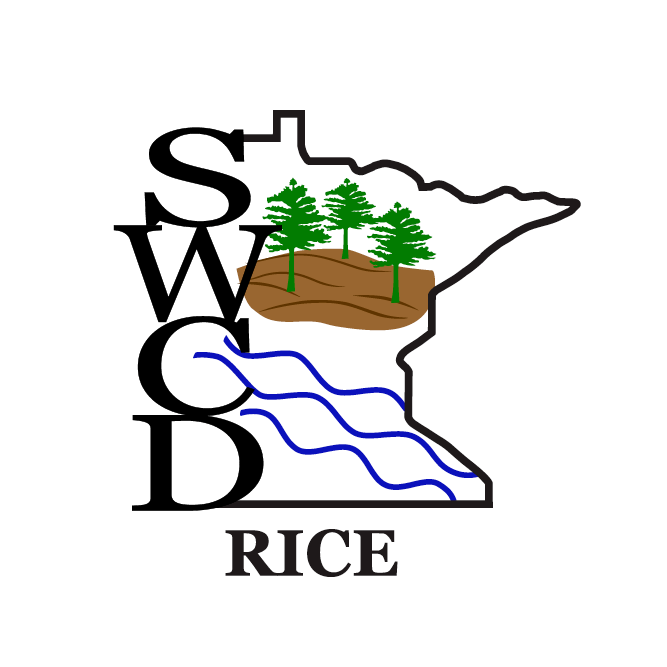Twin Oaks Farm
Conservation Story
Mike Peterson began implementing conservation practices on Twin Oaks Farm alongside his father starting in the 1970s. When he and his wife, Kay, took over the farm in the 1990s, they continued adopting practices to help reduce runoff and capture carbon in the ground.
Reduced tillage and installation of grassed waterways were the earliest practices implemented on the farm. More recently, Mike and Kay have:
- Adopted no-till and strip till practices with their soybeans. Eight hundred acres are now farmed using strip and no till.
- Integrated cover crops including 50 acres of annual ryegrass, bayou kale, and purple top turnips, along with five acres of winter cereal rye to produce seeds for future cover cropping.
- Implemented best practices for nutrient management including side-dressing nitrogen.
Conservation is important to Mike and Kay because they want to leave the topsoil for future generations of the family.
“The pieces of the puzzle are coming together. There are other early adopters in Rice County who we can compare cover crop practices to. We are not the only ones. There are good stewards in the county, and we communicate with them to try and make cover crops work.”
-Mike Peterson, Twin Oaks Farm
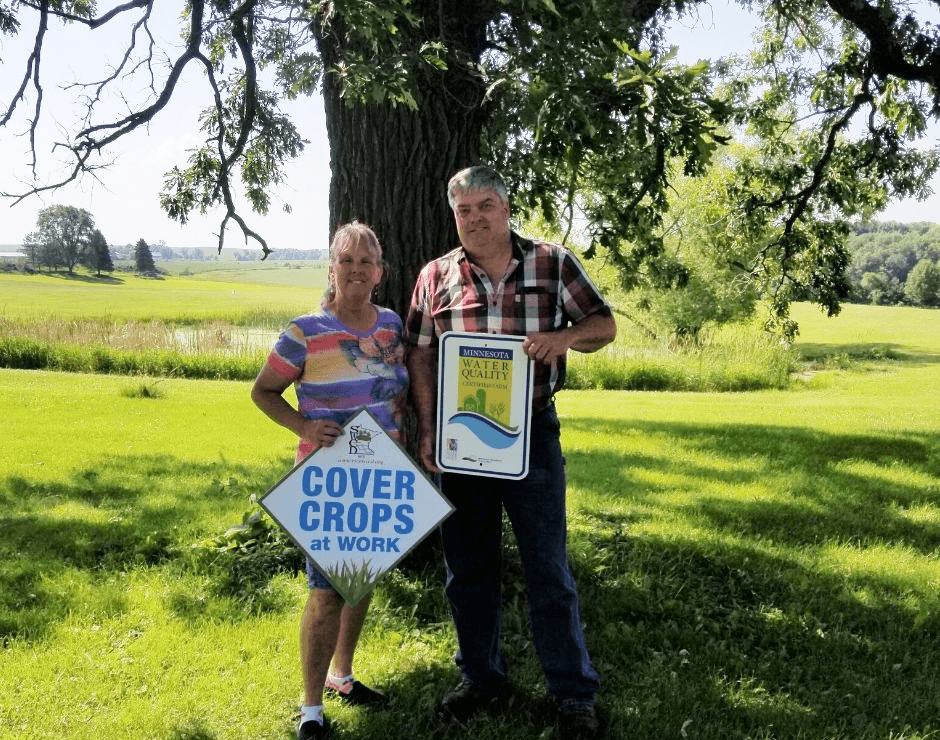
Farm Description
Mike and Kay Peterson own and operate Twin Oaks Farm, a third-generation farm in Northfield, Minnesota, with their sons Blake and Shane. They grow corn, soybeans, alfalfa, and cover crops on 800 acres.
Conservation practices at work

Cover crops

Grassed waterways

No till and strip till

Nutrient management
Get started today
Talk to Mike and Kay
Want to know more about how Mike and Kay made changes on their farm? Contact them today.
Connect with technical experts
Learn more about these practices and financial and educational resources available to make changes on your farm. Contact the Rice Soil and Water Conservation District at (507)-332-5408.
Explore more
Learn more about what other farmers in the region are doing to build soil health by exploring the rest of the tour.
